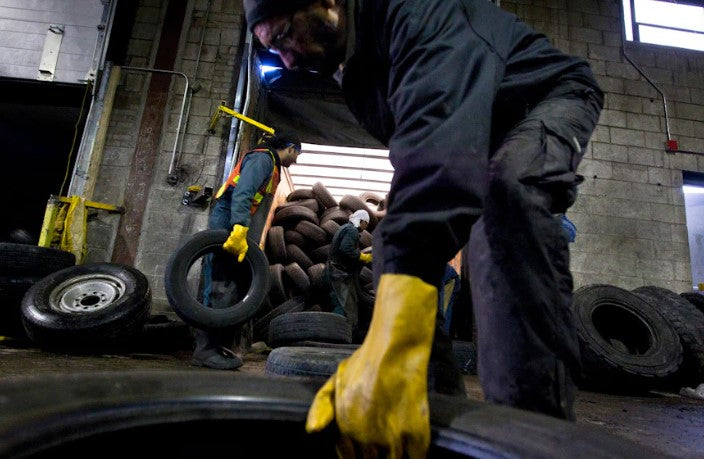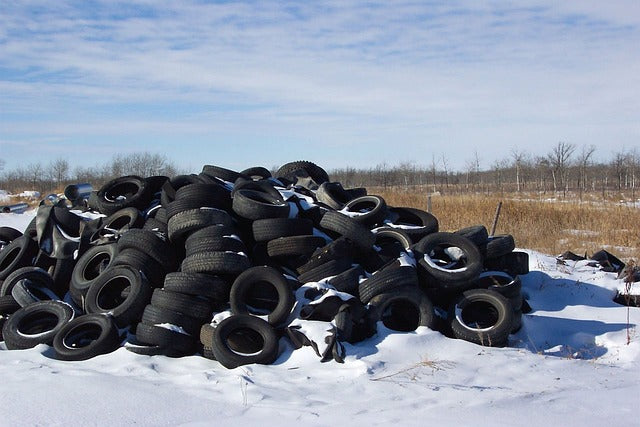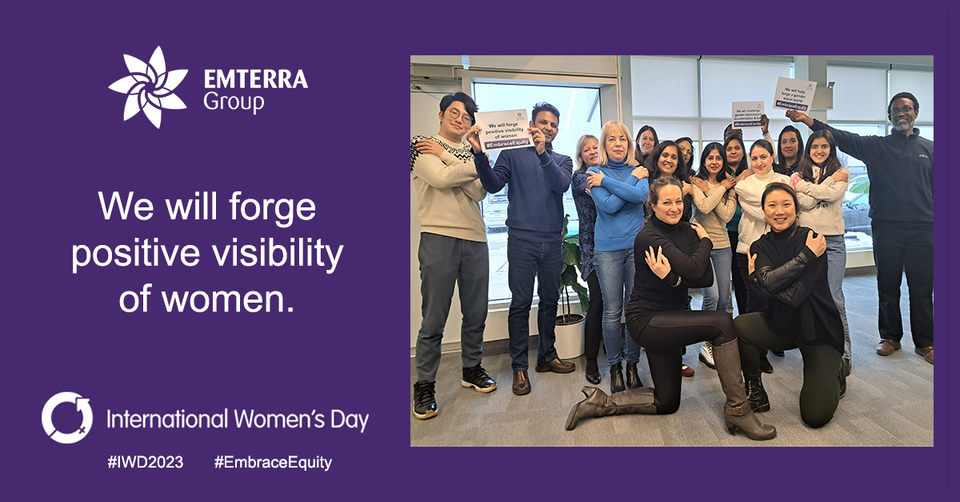
Five Canadian BIPOC Leaders in Sustainability
Emterra Environmental was founded in 1976 with one BIPOC woman, a truck, and a dream. Since then, Emterra has become a resource recovery leader in Canada and the state of Michigan, spending 45 years making the communities we service a little (lime) greener and enabling people and businesses to become stewards of the environment.
While we pride ourselves on the work we’ve done thus far, we know this is only one part of the solution towards ensuring a sustainable future for all, and we can’t do it alone.
That’s why we’re shining the spotlight on five Black, Indigenous, people of colour (BIPOC) Canadians who are making a difference with their advocacy and commitment to a cleaner, greener future for every Canadian.
Chief Dana Tizya-Tramm

Chief of Vuntut Gwitchin First Nations, Dana Tizya-Tramm, has advocated for environmental and species protection, Indigenous rights, and renewable energy for the past decade. He is the first Indigenous Chief to pass an emergency climate declaration, which set a precedent for the Council of Yukon First Nations, and the Yukon and Canadian governments.
Chief Tizya-Tramm advocates for incorporating renewable principles of Indigenous practices to decolonize modern economies and live sustainability. For instance, Chief Tizya-Tramm and his community built a solar farm that has reduced fossil fuel reliance by 190,000L per year and greenhouse gas emissions by 680 tonnes of CO2e per year. As a result, Chief Tizya-Tramm also negotiated an Electricity Purchase Agreement to sell electricity back to utility companies.
“Nature is the most efficient and advanced technology that exists – nothing is more sophisticated than nature.”
Melina Laboucan-Massimo

Melina Laboucan-Massimo is a Climate and Energy campaigner with Greenpeace Canada and the Indigenous Knowledge and Climate Change Fellow for the David Suzuki Foundation. For over 20 years, Melina has worked on climate justice, Indigenous sovereignty and women's rights, being the founder of Sacred Earth Solar and co-founder and Healing Justice Director at Indigenous Climate Action.
Melina’s mission is to help bring renewable energy to Canadian Indigenous communities by providing solar panels to empower these groups. Melina helped launch the Piitapan Solar Project, a 20.8kW renewable energy installation that powers the health centre in Little Buffalo, Alberta, her hometown. Melina currently serves on the boards of NDN Collective and Seeding Sovereignty and the Executive Steering Committee of Indigenous Clean Energy Social Enterprise.
“I work in the field of social, environmental and climate justice, this work can often be challenging and at times quite dire. I think it is essential to include the elements of creativity, love and humor in my life when responding to injustices in the world, otherwise it would be difficult to continue to do this work for the long haul as the heart would feel too heavy and overwhelmed which can be immobilizing.”
Kirk Johnson

With over 15 years of advocacy for sustainability, Kirk Johnson has made it his mission to educate and guide individuals, teams, and organizations on sustainability and its intersection with entrepreneurship. Kirk sits on the Board of Directors for Earth Day Canada, teaches in Humber College's Sustainable Entrepreneurship program, and pursues entrepreneurship through his work at the sustainability advisory firm, Eco-Efficiency Consulting.
Eco-Efficiency Consulting helps design sustainability programs for municipalities and introduces cleaner building measures to Ontario. As president, Kirk works with the private and public sector, Canadian homeowners, and occupants to help them reduce greenhouse gas emissions by saving money and energy.
“Energy efficiency is not just renewables, solar, or heat pumps. It is basically everything associated with buildings and clean technology. You can either be inspired to add energy efficiency to your daily life or even pursue a career in the energy efficiency sector, which I’m hoping more people do, because it’s a massive, big industry and it’s the coolest thing.”
Tina Yeonju Oh

Tina Yeonju Oh is a Korean immigrant that grew up in Edmonton, Alberta, and has become one of Canada's Top 25 Environmentalists Under 25. Tina’s work focuses on the intersections between human rights, feminism and environmentalism. As a climate campaigner and a migrant justice organizer for No One is Illegal-Halifax/Kjipuktuk, she aims to highlight the ways in which disadvantaged communities continue to suffer the most under climate change.
Tina lends her time to campaigns including DivestMTA, which is pressuring the university to withdraw its investments in fossil fuel companies, and Ottawa Climate 101, a youth-led protest on Parliament Hill that called on the Trudeau government to reject the Kinder Morgan Trans Mountain pipeline. She's also acted as a delegate for both the Canadian Youth Climate Coalition and the Government of Canada and shows no signs of letting her voice or vision lapse on her way to making concrete change.
“For young folks who want to get involved, you just have to do it. There are so many things going against us, in terms of systems, structures and bad ideologies. Nothing will get done if we don’t do it. Do it with friends – that makes it easier!”
David Suzuki

Canada’s most iconic environmentalist, David Suzuki, is a scientist, professor, activist, author of 52 books, host of the beloved long-running CBC series The Nature of Things, and co-founder of the nonprofit David Suzuki Foundation.
The David Suzuki Foundation attempts to tackle a whole host of problems facing our planet, including creating sustainable transportation, reducing pesticides, protecting our waters and endangered species and taking action on climate change. Over the last few years, David has worked with entrepreneur Brad Marchant to develop a technology that turns pre-consumer food waste into animal feed and fertilizer.
“When we forget that we are embedded in the natural world, we also forget that what we do to our surroundings we are doing to ourselves.”



